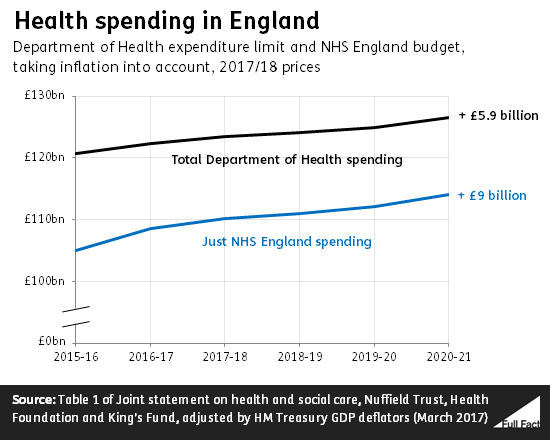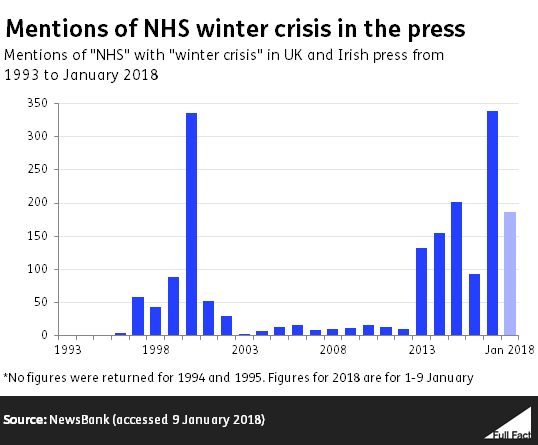BBC Question Time, factchecked
Join 72,330 people who trust us to check the facts
Subscribe to get weekly updates on politics, immigration, health and more.
“The truth is [Jeremy Corbyn] has already accepted that actually there is going to be a run on the pound [under a Labour government].”
Richard Tice, 28 September 2017
John McDonnell said “I don't think there will be” a run on the pound (a Black Wednesday-style rush of investors losing confidence in the pound, selling their assets and causing a sudden devaluation). But he thinks that Labour should carry out “war game-type scenario planning” in case it does happen.
He told a Labour Party conference event that people “want to know that we have got a response to anything that could happen”, according to Sky News.
At the moment, McDonnell said, the “relevant expertise” is being brought together to carry out such plans.
Yet a Labour party spokesperson has since said that this is not official party practice.
"This was an exercise not done by us but by members”, they told the BBC.
“The scenarios were to deal with numerous events such as national disasters and acts of terror that could occur under any government."
Nonetheless, Jeremy Corbyn has spoken supportively of McDonnell’s suggestions in a BBC interview.
"I think John is right to look at all these scenarios" he said. “If we move into government we need to… look at all the scenarios we might face.”
So Labour does not expect a run on the pound, but parts of the party are planning for it. And although scenario-planning is not official party practice, Mr Corbyn and Mr McDonnell are both supportive of it.
“We’ve got the deficit down”
Karen Bradley, 28 September 2017
The deficit has fallen from 10% of UK GDP in 2009/10, just before the Coalition government came to power, to 2.3% in 2016/17. That’s a fall from £170 billion in 2009/10 to £45 billion in 2016/17 (accounting for inflation). The reduction is well below the Conservatives’ original plan of reaching a surplus by 2015.
What is the deficit?
We’re using the public sector net borrowing measure of the deficit. This is the difference between the government’s income (from things like taxes and investments) and everything it spends on public services, investment, and debt interest. It’s different to the national debt, which is the total amount the government owes to other institutions.
The deficit can be calculated in cash terms, or as a percentage of GDP, which tells us the size of the deficit in relation to the value of the economy as a whole in that year.
It’s down, but it’s taking a lot longer than the Conservatives initially planned
So why does Karen Bradley make a point of this?
Cutting the deficit—and achieving a surplus—has been a pledge for this Conservative government and the previous Coalition government. And although it has been cut it since 2010, the Conservatives have not met all of their targets.
The government set deficit targets in 2010 (which it didn’t meet) and in 2015 (which it abandoned).
In 2015 the government updated its plans, aiming to have a surplus on public sector net borrowing by 2019/20.
The government isn’t forecasted to achieve this within the next five years, and new targets were set by the Chancellor last autumn, which are “presumed” to be for 2024-25.
So the deficit has been coming down, but not as rapidly as the Coalition and the Conservatives had said in 2010 and 2015.
“Will the £500 million bailout for the NHS, which Labour are calling for, make any difference..?”
BBC Question Time audience member, 28 September 2017
“I'm not sure that it's necessarily just - whatever money is promised by the Labour Party is necessarily going to be enough”.
Karen Bradley, 28 September 2017
It’s true that £500 million is “not a large number in proportion” to the £124 billion of total NHS spending in England, as David Dimbleby said. It’s about enough to run the English NHS for a day and a half.
The bigger question, also debated in the programme, is whether the NHS is getting enough money overall. We covered that here.
Government after government has considered £500 million plenty of money to boast about giving the NHS to help deal with the extra pressures of winter.
In the winter 2015, the Conservative government included “£400 million in resilience money” for winter in the NHS England budget.
In 2013, the Coalition government announced “A&E departments will benefit from an additional £500 million over the next 2 years to ensure they are fully prepared for winter.”
Right back in 1997, the Labour government assigned £300 million in additional expenditure on the NHS for the winter.
So every government for the past 20 years has argued that £500m is enough to make a difference when it comes to winter pressures on the NHS, but in the bigger argument about how much the NHS needs to survive and thrive in the future, it’s not a lot of money.
“We've given the NHS the money that they asked for.”
Karen Bradley, 28 September 2017
The NHS “got less than we asked for”, the chief of NHS England Simon Stevens told MPs in the Public Accounts Committee in January.
Mr Stevens also said last year that the money the government has committed is at the lowest end of a range of options the NHS set out.
For it to be enough, he said the service also needs to see “continuing access to social care” and “enhanced effort on prevention and public health”. Public health spending is expected to fall and spending on social care is set to fall short of what experts think is needed.
Total health spending—the Department of Health’s budget—will increase by around £5.9 billion over the period 2015/16 to 2020/21, while spending specifically on NHS England will increase by £9 billion.

The government did agree to ‘front loading’ the spending increases over this period—meaning that more money will be made available in the early years, and comparatively smaller increases in the later years.
“This term ‘winter crisis’, if we go back in time to when we had a Labour government, I don't remember that term ever showing up. It’s something that in the last few years, every year, someone says winter crisis, winter crisis.”
BBC Question Time audience member, 28 September 2017
The term “winter crisis” does seem to have become more common in the past few years.
A crude search for articles containing both "NHS" and “winter crisis” in a newspaper database since 1993 shows the term was relatively common in newspapers in the UK in the first five or six years of the Labour government (1997-2002). There was a big spike in the year 2000, the year of a serious flu outbreak.
“Winter crisis” was heard of very little after 2002, until it re-emerged as a common talking point under the Coalition and then Conservative governments from 2013 onwards.
